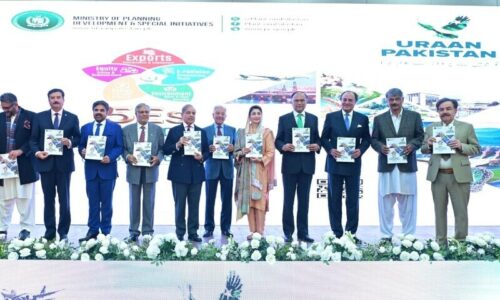22
By Farhan Qutab Siddiqui
The ‘Uraan Pakistan’ Program emerges as a strategically sound initiative for addressing the critical challenges of youth unemployment and skill mismatches in Pakistan. With over 60% of the population under 30, the program directly targets a demographic that holds the potential to drive economic growth, provided they are equipped with the necessary skills and opportunities.
One of the program’s key strengths lies in its focus on vocational training and digital literacy. By aligning educational outcomes with the demands of the job market, ‘Uraan Pakistan’ seeks to bridge the skills gap that has plagued a fairly under-skilled workforce in Pakistan. For example, as the global economy increasingly leans towards technology-driven industries, equipping youth with skills in coding, data analysis, and digital marketing can significantly enhance their employ-ability. The provision of training in sectors like renewable energy also aligns with global sustainability trends, making this approach future-oriented.
Furthermore, the emphasis on entrepreneurship through financial support and micro-loans is particularly noteworthy. By encouraging young individuals to start their own businesses, ‘Uraan Pakistan’ aims to foster innovation and self-reliance in the Pakistani youth. This will not only help mitigate unemployment but also contribute to economic diversification across the board. In a country historically reliant on traditional industries, nurturing startups can lead to job creation and stimulate local economies.
Inclusivity is another critical aspect of the program. By targeting marginalized communities, especially women and rural youth, ‘Uraan Pakistan’ aims to create equitable access to economic opportunities. This focus on inclusivity ensures that growth is not only robust but also socially sustainable, helping to tackle inequality and promote social cohesion.
In conclusion, the Uraan Pakistan Program represents a strategic initiative that could significantly enhance the economic landscape of Pakistan. By addressing youth unemployment, promoting skill development, fostering entrepreneurship, and ensuring inclusivity, it has the potential to propel the nation toward a more prosperous and vibrant future.




